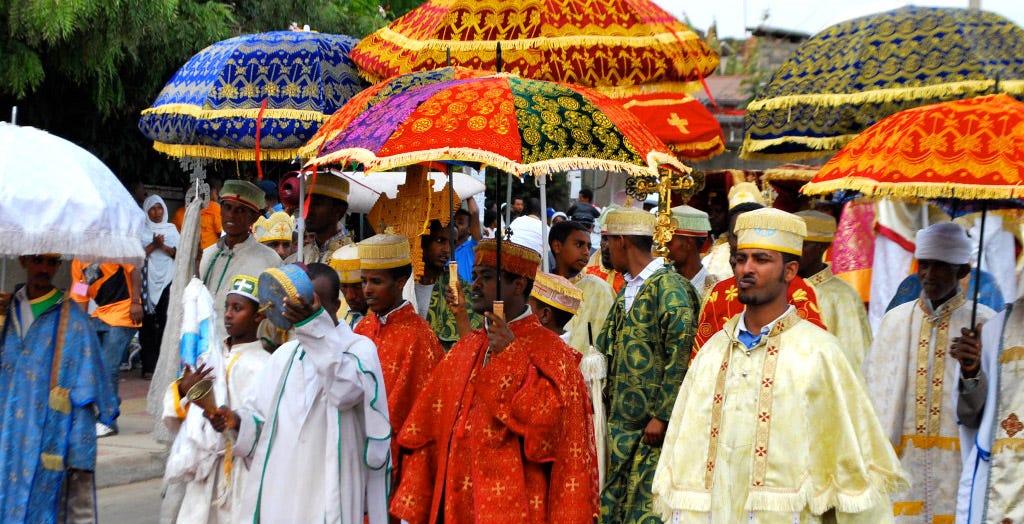Introduction:
Ethiopian Christmas, known as Genna, is a vibrant and distinctive holiday that blends ancient traditions, religious observances, and lively festivities. Celebrated on January 7th according to the Julian calendar, Genna is a time of joy, family gatherings, and cultural expressions. This article explores the unique aspects of Ethiopian Genna, from its historical roots to its contemporary practices.
Historical and Religious Significance:
Ethiopia has a long-standing Christian history, with the Ethiopian Orthodox Church playing a central role in the nation's religious and cultural life. Genna commemorates the birth of Jesus Christ in Bethlehem and is deeply rooted in the Orthodox Christian tradition. The holiday is observed with great fervor and devotion, drawing large crowds of worshippers to churches throughout the country.
Extended Fasting Period:
In preparation for Genna, devout Orthodox Christians engage in an extended fasting period known as Tsom. This fasting period typically lasts for 40 days, during which individuals abstain from certain foods and engage in spiritual reflection. The fasting period culminates on Christmas Eve, when families gather for a feast known as Feast of Genna.
Late-Night Church Services:
One of the most notable traditions associated with Ethiopian Genna is the late-night church services held on Christmas Eve. These services can last well past midnight and feature beautiful liturgical singing, chanting, and colorful robes worn by the priests and deacons. Many people travel by foot from church to church, attending multiple services until the dawn of Christmas morning.
Lively Genna Game:
A unique aspect of Ethiopian Genna is the sport called Genna, which is played primarily during the holiday season. According to legend, the shepherds who learned about Jesus's birth played a spontaneous game resembling field hockey. Genna matches are played by young men in the afternoon, creating an exciting and lively atmosphere in communities across the country.
Celebrations and Feasting:
Genna is a time for joyous celebrations and feasting. Families gather for elaborate meals that often include traditional dishes such as injera, wat, and tibs. The holiday is also marked by the exchange of gifts, particularly new clothes for children, and the sharing of alcoholic beverages like tej and talla.
Lalibela's Grand Celebrations:
The city of Lalibela is renowned for its iconic rock-hewn churches and its grand Genna celebrations. During the holiday, thousands of pilgrims flock to Lalibela to witness the woreb ceremony, where immaculately dressed Orthodox clergy perform a moving musical performance about the birth of Jesus Christ. The woreb is accompanied by traditional church drums, metallic sistrums, and clapping, creating a truly unforgettable experience.
Conclusion:
Ethiopian Genna is a rich and vibrant holiday that showcases the nation's deep-rooted Christian traditions, cultural heritage, and vibrant spirit. It is a time for spiritual reflection, family gatherings, and joyful celebrations. The unique aspects of Genna, such as the extended fasting period, late-night church services, hockey-like game, and lavish feasting, set it apart from other Christmas celebrations around the world. Genna is a testament to the diverse and captivating religious and cultural tapestry of Ethiopia.





